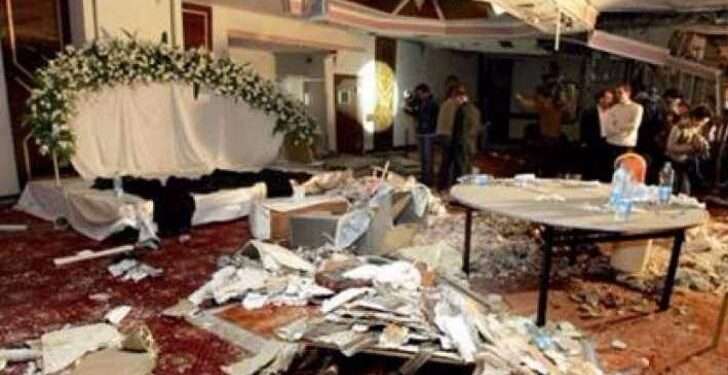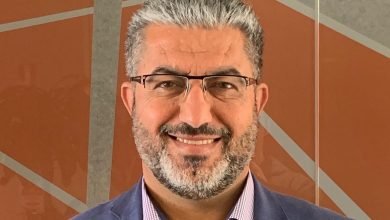
By : Farrah Al Abdallat
Research Analyst
Jordan Daily – Two decades have passed since Jordan’s “Black Wednesday,” when terror struck Amman and 58 lives were lost in a single night of violence. That day did more than scar a city-it transformed a nation’s resolve, giving rise to one of the Middle East’s most resilient and forward-looking security doctrines.The attacks, carried out by al-Qaeda in Iraq under Abu Musab al-Zarqawi, shocked the nation and served as a grim reminder that extremism can strike even the most stable societies. Yet from that moment of collective trauma emerged a national determination that has since shaped one of the Arab world’s most effective counterterrorism models.[1]
Globally, terrorism remains far from eradicated. According to the Global Terrorism Index 2025, the number of countries experiencing at least one terrorist incident rose from 58 to 66 in 2024, the highest level since 2018. For the first time in seven years, more countries deteriorated than improved, with 45 reporting higher impacts from terrorism, while only 34 showed progress. The Islamic State (IS) and its affiliates remained the deadliest groups, responsible for 1,805 deaths across 22 countries, while other major organisations such as JNIM, TTP, and al-Shabaab expanded their reach from 29 to 30 countries.[2] These figures underscore that terrorism remains a persistent and adaptive threat, continuing to shape the security landscapes of many states.
In contrast, Jordan stands as a model of stability and foresight. In the wake of the 2005 bombings, the Kingdom enacted Anti-Terrorism Law No. 55 of 2006, which broadened the definition of terrorist acts, introduced stricter penalties-including capital punishment for acts resulting in death-and empowered authorities to pre-empt attacks before they materialised[3]. A year later, the Anti-Money Laundering and Counter-Terrorist Financing Law No. 46 of 2007 established a national financial intelligence unit, tightening control over illicit flows linked to extremism[4]. Together, these measures formed the legal foundation for Jordan’s proactive, intelligence-driven security doctrine.
Over two decades, Jordan’s intelligence and security institutions have evolved into among the most capable in the region, guided by the belief that security must coexist with the rule of law and political moderation. Central to this approach is the Aqaba Process, launched by His Majesty King Abdullah II in 2015, which has become a cornerstone of global counterterrorism diplomacy. The initiative convenes world leaders, security agencies, and international organisations to share expertise and coordinate responses to violent extremism across continents.[5]
In April 2025, His Majesty and Bulgarian President Rumen Radev co-chaired a new round of Aqaba Process meetings in Sofia, the third forum focused on the Balkans. Discussions addressed online radicalisation, illegal migration, and regional security challenges, highlighting the intersection between extremism and transnational threats[6]. Later that year, in October 2025, His Majesty and Italian Prime Minister Giorgia Meloni co-chaired another round in Rome, dedicated to West Africa. Both meetings gathered leaders and security officials from Europe, Africa, Asia, and the Americas-alongside representatives of the United Nations, NATO, the European Union, INTERPOL, and the Global Internet Forum to Counter Terrorism-highlighting Jordan’s sustained leadership in advancing multilateral counterterrorism cooperation.[7]
Jordan’s regional role has also expanded amid shifting dynamics in the post-conflict Middle East—particularly in Syria, where Amman has become a pivotal partner in supporting stability under Prime Minister Ahmad al-Sharee’s new government. In August 2025, Jordan hosted a tripartite meeting with Syria and the United States in Amman to coordinate reconstruction and security efforts. The meeting produced a joint working group to help Damascus consolidate the ceasefire in Suwayda Province and strengthen national institutions amid lingering sectarian tensions. His Majesty King Abdullah II reaffirmed Jordan’s readiness to share its counterterrorism expertise and assist Syrian authorities in combating terrorism, arms trafficking, and drug smuggling, while supporting reconstruction and governance reforms.[8] This pragmatic engagement reflects Jordan’s strategic balancing act re-establishing coordination with Syria’s new leadership to secure its northern frontier while aligning with international efforts, particularly those led by Washington, to achieve a sustainable post-war settlement.
At the global level, Jordan’s strategic partnership with the United States remains a cornerstone of its counterterrorism success. The two allies maintain deep intelligence coordination, joint military planning, and extensive training and assistance programs that reinforce Jordan’s defensive and counter-extremism capabilities. Under the U.S.–Jordan Defense Cooperation Agreement (DCA), renewed in 2021, American forces have access to key Jordanian facilities, allowing close coordination with U.S. Central Command (CENTCOM) in addressing cross-border threats and maintaining regional stability.[9]Through initiatives such as the Jordan Operational Engagement Program and sustained U.S. support for border surveillance, reconnaissance, and capacity-building, Amman has significantly strengthened its ability to detect, deter, and respond to emerging risks. This enduring alliance reflects a shared strategic vision-embedded in moderation, collective security, and regional stability-and continues to make Jordan one of Washington’s most reliable and capable partners in the global fight against terrorism.[10]
Even as terrorist threats within Jordan’s borders have become nearly non-existent, His Majesty continues to play a central role in advancing international cooperation against extremism. The Aqaba Process embodies Jordan’s conviction that lasting security cannot be achieved through military strength alone-it must rest on dialogue, trust, and the exchange of knowledge among nations.
Situated in the heart of turmoil Jordan has maintained a remarkable equilibrium: security rooted in foresight, democratic values, and social cohesion. Two decades after “Black Wednesday,” Jordan’s experience stands as a testament to resilience-not merely the absence of violence, but the deliberate cultivation of stability and cooperation in an era of persistent uncertainty.
[1] EBSCO Research Starters. “Amman Hotel Bombings.” EBSCO, 2024. https://www.ebsco.com/research-starters/diplomacy-and-international-relations/amman-hotel-bombings
[2] Institute for Economics & Peace (IEP), Global Terrorism Index 2025: Measuring the Impact of Terrorism (Sydney: IEP, 2025), 8–9, https://www.visionofhumanity.org/wp-content/uploads/2025/03/Global-Terrorism-Index-2025.pdf.
[3] Government of Jordan. Anti-Terrorism Law No. 55 of 2006. Official Gazette No. 4784, November 2006.
[4] Government of Jordan. Anti-Money Laundering and Counter-Terrorist Financing Law No. 46 of 2007. Official Gazette No. 4821, 2007.
[5] Royal Hashemite Court. “Aqaba Process.” rhc.jo, 2024.
[6] Royal Hashemite Court. “King, Bulgarian President Chair New Round of Aqaba Process Meetings.” April 4, 2025. https://kingabdullah.jo/en/news/king-bulgarian-president-chair-new-round-of-aqaba-process-meetings-1.
[7] Royal Hashemite Court. “King, Bulgarian President Chair New Round of Aqaba Process Meetings.” April 4, 2025. https://kingabdullah.jo/en/news/king-bulgarian-president-chair-new-round-of-aqaba-process-meetings-1.
[8] Al Jazeera. “Jordan-Syria-US Meeting Held in Amman to Discuss Syrian Reconstruction.” August 12, 2025.
[9] U.S. Department of Defense. “U.S.–Jordan Defense Cooperation Agreement.” Washington, D.C., 2021.
[10] U.S. Central Command (CENTCOM). “Jordan Operational Engagement and Regional Security.” Tampa, FL, 2024.

